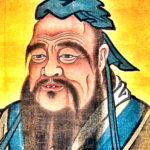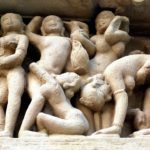Budoism Philosophy
Budo, or the “way of the martial arts” is influenced by Bushido, the “way of the warrior,” or samurai. Influenced both by Confucianism and Zen, Bushido essentially served as a code and philosophy for the samurai in feudal Japan. Budo is a more modern term which defines the application of warrior principles to the betterment of one’s life.
As with Bushido, the philosophy of Budo is hallmarked by a striving for sincerity, frugality, loyalty, discipline, honor, wisdom, patience and serenity.
Budoism History
The samurai warrior of medieval Japan is a figure popular in modern pop culture, normally for his incredible fighting prowess, but also for his strength of character and heroic self-sacrifice. From the Western perspective, the historical practice of Bushido can be seen to be extreme, with an obsessive adherence to duty and submission to the leadership of the ruling class. Moreover, this resulted in a cruelty towards enemies that is looked down upon today. The more modern notion of Budo has a softer character than that of the Bushido of the original samurai. Practitioners of the Japanese martial arts tend to stress harmony, mercy and conciliation to a degree that would not have been allowed by the strict samurai code.
Japanese scholars mark the beginning of Budo with the overthrow of the last feudal shogunate in the mid-19th century. This is when the principles of Bushido were transformed to apply first to the military and then to the masses, with martial arts becoming a part of ordinary school curricula. Varieties such as judo, kendo, karate and sumo gradually began to become an ordinary part of Japanese training, sport, and ultimately spirituality. Their promotion of elements of the Bushido code helped foster a sense of mental discipline as well as advancing ancient Confucian and Buddhist principles.
Budoist Practice
The modern Budoist primarily practices their creed by engaging in the martial arts. However, they can also adopt the characteristics of the Bushido warrior’s code, as mentioned above. Inculcating a profound honesty, integrity, loyalty, frugality, self-reliance, and a sense of duty in one’s character is more important than earning belts in martial art disciplines.
Budoism AKAs
Karateism, Judoism, Kendoism, Sumoism, Aikidoism, etc.
Budoisms
A truly brave man is ever serene; he is never taken by surprise; nothing ruffles the equanimity of his spirit. In the heat of battle he remains cool; in the midst of catastrophes he keeps level his mind. Earthquakes do not shake him, he laughs at storms. We admire him as truly great, who, in the menacing presence of danger or death, retains his self-possession; who, for instance, can compose a poem under impending peril or hum a strain in the face of death.
― Inazo Nitobe
Karate is not about techniques and their execution, but about boldness, integrity and fight for justice and common good.
― Soke Behzad Ahmadi
There is certainly nothing more important in life than what we do at the present moment. A person’s entire life consists of nothing more than one moment piled on top of another, over and over again. Once enlightened to this, the warrior has nothing else to worry about, because he realizes that he has only to live in the present moment with the utmost intensity.
— Yamamoto Tsunetomo
Budoism Community
Get ordained as a Budoist Minister











I have actually applied this to my life before I was aware of a ministry.